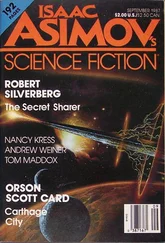Brad Parks - The Girl Next Door
Здесь есть возможность читать онлайн «Brad Parks - The Girl Next Door» весь текст электронной книги совершенно бесплатно (целиком полную версию без сокращений). В некоторых случаях можно слушать аудио, скачать через торрент в формате fb2 и присутствует краткое содержание. Год выпуска: 2012, ISBN: 2012, Издательство: Minotaur Books, Жанр: Триллер, на английском языке. Описание произведения, (предисловие) а так же отзывы посетителей доступны на портале библиотеки ЛибКат.
- Название:The Girl Next Door
- Автор:
- Издательство:Minotaur Books
- Жанр:
- Год:2012
- ISBN:031266768X
- Рейтинг книги:4 / 5. Голосов: 1
-
Избранное:Добавить в избранное
- Отзывы:
-
Ваша оценка:
- 80
- 1
- 2
- 3
- 4
- 5
The Girl Next Door: краткое содержание, описание и аннотация
Предлагаем к чтению аннотацию, описание, краткое содержание или предисловие (зависит от того, что написал сам автор книги «The Girl Next Door»). Если вы не нашли необходимую информацию о книге — напишите в комментариях, мы постараемся отыскать её.
The Girl Next Door — читать онлайн бесплатно полную книгу (весь текст) целиком
Ниже представлен текст книги, разбитый по страницам. Система сохранения места последней прочитанной страницы, позволяет с удобством читать онлайн бесплатно книгу «The Girl Next Door», без необходимости каждый раз заново искать на чём Вы остановились. Поставьте закладку, и сможете в любой момент перейти на страницу, на которой закончили чтение.
Интервал:
Закладка:
“I don’t know. Maybe never.”
“Tina…”
“No,” she said sharply. “We’re not doing this. Please .”
She punctuated the “please” with an emphatic jerk of the head, like she wanted to create a page break between that conversation and a new one.
“So how do we move forward from here?” I asked.
“The same way we did yesterday. I’m your editor. You’re my reporter. That’s the real reason I called you in here. I have a story I need you to work on.”
“Oh,” I said, a little taken aback. It was the last thing I expected to hear. Tina plowed forward:
“We’re getting word there’s a bear in Newark.”
“A what?”
“A bear. As in the furry, forest-dwelling creature. Except this one isn’t in a forest. It wandered into Newark overnight and is now rambling around Vailsburg.”
“I actually have something I’m working on at the moment. Mind putting someone else on it?”
“Have you looked around the newsroom lately, Carter? I would put ‘someone else’ on it, but ‘someone else’ took a buyout three years ago, and ‘the other guy’ got laid off last year,” she said, not bothering to hide her annoyance. “We need a writer on this thing. If we get the right art, this could lead the paper. You know how Brodie loves animal pictures.”
I did. It had just been a long time since that particular partiality-which ran the gamut from bears to dogs to escaped pet alligators-had been my problem. Those kinds of stories were generally farmed out, as it were, to bureau reporters or interns, not members of the investigative team. And yeah, maybe it was a little bit of a diva move, trying to duck this assignment. But I didn’t get into journalism so I could write searing exposes on zoo animals.
“What about Hays? Can’t he do it?”
“Hays is the only full-time reporter we have covering every crime between here and Morristown. And besides, he’d end up writing this as straight news.”
“What about Whitlow?”
“Whitlow is on vacation.”
“What ab-”
“Stop it, Carter,” she snapped. “You don’t make the staffing decisions around here, and you certainly don’t get to second-guess them. I’m your editor and I’m telling you this is your job. End of conversation.”
“You’ve got to be kidding me. This is the stupidest-”
“End of conversation. Go.”
Tina buried her attention in her computer screen, as if to emphasize our dialogue had, indeed, come to a close. I couldn’t help but feel this was personal. I had crossed some kind of boundary with Tina last night, gotten a little too close to someone who preferred to maintain a rather generous buffer zone. Saddling me with a stupid daily story was her way of planting me firmly back on the other side of the line.
“You can take an intern with you if you want someone to help with the legwork,” she said, without making eye contact. “I don’t think Lunky has anything to do right now.”
“Aww, come on-Lunky?”
“Yeah, you know, the big-”
“I know who he is. I’ve also heard he can’t walk and chew gum at the same time.”
“Probably true,” Tina said. “So I suggest you don’t share your Bubblicious with him.”
* * *
If Tina thought I was going to waste my day dodging piles of bear scat in Newark, she had another think coming. Fortunately for me, I wasn’t beneath using interns to do my work for me. And so, in giving me Lunky, she had unwittingly provided me an escape from this lowly task.
“Lunky” was the clever nickname the editors had given to Kevin Lungford. He was one of the newest members of the ever-rotating battery of indentured servants who have become increasingly predominant in most newsrooms, mostly because of their remarkable ability to subsist on salaries that qualify as human rights violations.
Our editors thought of the interns as packages of ramen noodles: cheap, portable, and surprisingly filling, but not something you put a lot of care into making. I, on the other hand, tried to take an interest in their personal development. I guess it’s because I don’t have time to volunteer at animal shelters. I push for the humane treatment of interns instead.
Our interns come in all shapes, colors, and talent levels. Some of them are actually quite good, or at least have the potential to become good.
Others are like Lunky. In the few weeks he had been here, the only thing that had distinguished him at all was his size, which was, to be sure, quite impressive. He was about six foot five and had the kind of heft to his chest and shoulders that suggested his weight was somewhere in the neighborhood of 275. He had an abundance of bushy hair protruding out of a massive skull, with a sloped forehead a pronounced ridge above his brow, all of which made it tempting to surmise he had some Neanderthal DNA floating around in him. Combine his general, hulking appearance with the last name Lungford, and it didn’t take long for his nickname to originate or stick.
The rumor was Lunky had played defensive end on his college football team-probably at one of those jock schools that had majors like “Personal Communications”-and that the sports department had hired him without much vetting, mostly with the intention of having him bat cleanup for their softball team.
But for reasons that were still unclear, sports promptly shipped him over to news, where he wasn’t considered much of a value-add, either. His byline had, so far, been suspiciously absent from the newspaper. From what I gathered, people tried not to talk to him. So he hung around the newsroom, all day and halfway into the night-long after most of the other interns had gone home-with apparently nothing to do.
As I approached him, sitting in a chair that looked too small for him, alone in the raft of desks where we stick the interns, I actually felt sorry for him. Poor Lunky, dim, dull, and friendless, was reading a thin paperback that more or less disappeared in his massive hands. I couldn’t tell what was on the cover, but it was about the size and shape of a comic book.
“Hi, Kevin,” I said. “I’m Carter Ross. We’ve been assigned to work on a story together.”
He held up a finger, as if he didn’t want to break his concentration from the exploits of the Green Lantern. I watched him read for a second-at least I couldn’t see his lips moving-then he finally looked up.
“Sorry, I just got to a good part,” he said, then turned his attention back to his reading. “Listen to this: ‘The invariable mark of wisdom is to see the miraculous in the common. What is a day? What is a year? What is summer? What is woman? What is a child? What is sleep?’”
I felt my head cocking to one side.
“What … What are you reading?”
“Emerson.”
“Excuse me?”
“Emerson.”
“As in Ralph Waldo?”
“Of course,” Lunky said. “I actually started out with Thoreau-he was going to be my ‘summer beach read,’ if you will. But I just wasn’t getting the most out of my Thoreau because I wasn’t as current as I wanted to be on my Emerson. Trying to understand Thoreau without being solid with Emerson would be like”-he paused, groping for the right analogy-“trying to make sense of a baby without having ever met its mother.”
“Uhh,” I said, mostly because it expressed the sum total of my knowledge about the subject. As an English major at Amherst, I should probably have been a little more conversant on all things transcendental. But I put in more hours at the student newspaper than I ever spent in the stacks. I usually just tried to fake my way through these kinds of discussions.
“This is some incredible stuff,” he continued, fanning back pages in what I now recognized was no comic book. “Check this out, ‘… why should we grope among the dry bones of the past, or put the living generation into masquerade out of its faded wardrobe? The sun shines to-day also. There is more wool and flax in the fields.’”
Читать дальшеИнтервал:
Закладка:
Похожие книги на «The Girl Next Door»
Представляем Вашему вниманию похожие книги на «The Girl Next Door» списком для выбора. Мы отобрали схожую по названию и смыслу литературу в надежде предоставить читателям больше вариантов отыскать новые, интересные, ещё непрочитанные произведения.
Обсуждение, отзывы о книге «The Girl Next Door» и просто собственные мнения читателей. Оставьте ваши комментарии, напишите, что Вы думаете о произведении, его смысле или главных героях. Укажите что конкретно понравилось, а что нет, и почему Вы так считаете.












